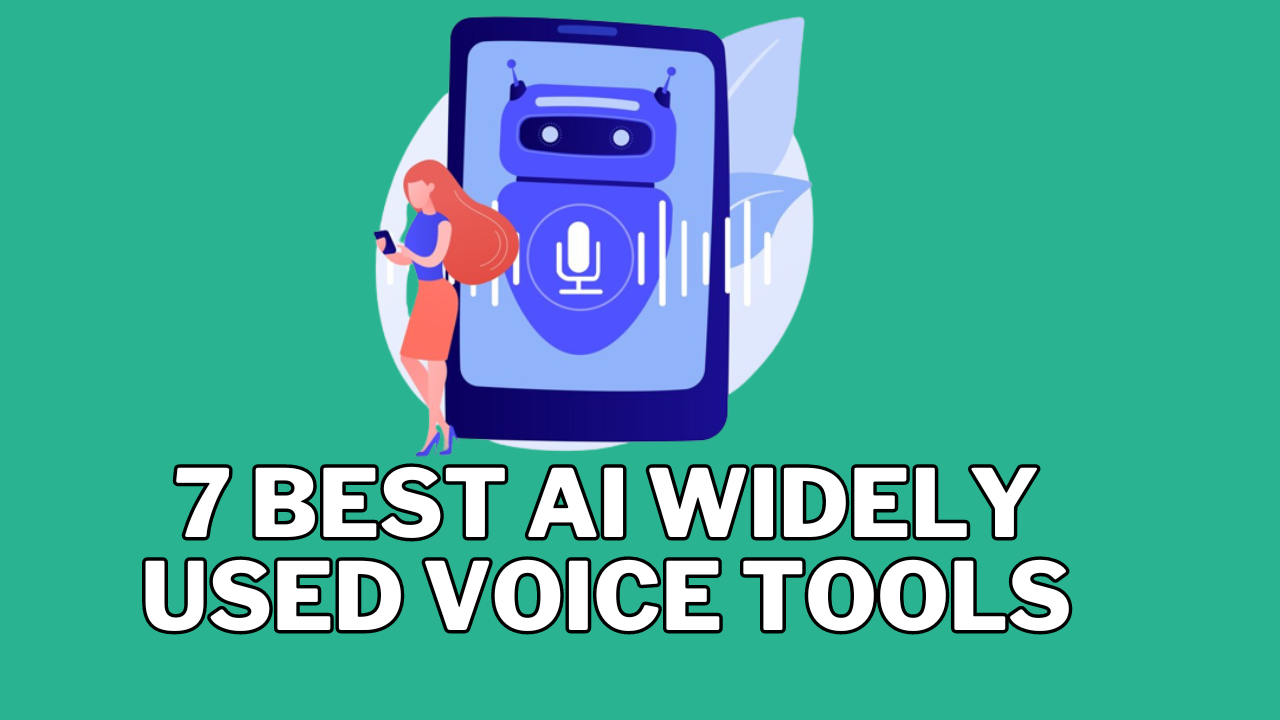Artificial intelligence (AI) has touched various aspects of our lives. One such area is AI voice generators, which are gaining popularity among people from all walks of life. But which AI voice generator is everyone using? Let's explore some of the most commonly used ones.
1 Google Text-to-Speech: Google Text-to-Speech is widely recognized and used by many. It's known for its natural-sounding voices and ease of use. Whether you need it for reading out articles or providing voiceovers, Google Text-to-Speech is a trusted choice.
Google Text-to-Speech Pros and Cons
Pros:
- Natural-sounding voices.
- Easy to use and widely accessible.
- Compatible with various platforms and applications.
- Offers multiple languages and accents.
Cons:
- Limited customization options.
- Voice selection can be somewhat limited compared to other tools.
- Internet connectivity is required for real-time usage.
2 Amazon Polly: Amazon Polly is another AI voice generator that has garnered attention. It's frequently employed in e-learning platforms and podcasts. Its clear and expressive voices make it a go-to choice for those who want their content to sound professional.
Amazon Polly Pros and Cons
Pros:
- High-quality, expressive voices.
- Suitable for e-learning and professional content.
- Scalable for businesses.
- Supports multiple languages and offers custom lexicons.
Cons:
- Cost can be high for extensive usage.
- A limited free tier with usage restrictions.
- May require technical expertise for integration.
3 Microsoft Azure Text to Speech: Microsoft Azure's Text to Speech service is employed by businesses and individuals alike. Its versatility and compatibility with various applications make it a preferred option for many.
Microsoft Azure Text-to-Speech Pros and Cons
Pros:
- Versatile and compatible with various applications.
- Supports multiple languages and voices.
- Offers customizable speech synthesis markup language (SSML).
- Scalable for businesses.
Cons:
- The cost associated with usage.
- Requires Azure account and some technical knowledge for setup.
- Limited free tier.
4 IBM Watson Text to Speech: IBM Watson Text to Speech is known for its quality voices and flexibility. Users often rely on it for creating voice-enabled applications and services.
IBM Watson Text-to-Speech Pros and Cons
Pros:
- High-quality voices and flexibility.
- Suitable for creating voice-enabled applications.
- Customizable with SSML.
- Supports multiple languages.
Cons:
- Cost may be prohibitive for some users.
- Requires an IBM Cloud account.
- Limited free usage.
5 iSpeech: iSpeech is accessible and user-friendly. It's favored for its simplicity and clear voice output. Many use it for converting text into speech effortlessly.
iSpeech Pros and Cons
Pros:
- User-friendly and straightforward.
- Clear voice output.
- Ideal for converting text to speech quickly.
- Offers a free trial.
Cons:
- Limited customization options.
- Voice selection may not be as extensive as other tools.
- The free trial may have usage limitations.
6 Natural Reader: Natural Reader is known for its user-friendliness and clear voice output. People often use it for reading out documents and articles, making it a popular choice among students and professionals.
Natural Reader Pros and Cons
Pros:
- User-friendly interface.
- Clear voice output.
- Popular among students and professionals.
- Supports multiple languages.
Cons:
- Limited free features.
- May not offer the highest-quality voices compared to premium options.
- May lack advanced customization.
7 ResponsiveVoice: ResponsiveVoice is known for its ease of integration into websites. Many website owners utilize it to provide an accessible and engaging experience to their visitors.
ResponsiveVoice Pros and Cons
Pros:
- Easy integration into websites.
- Suitable for enhancing user engagement.
- Offers multiple voices.
- Provides a free trial.
Cons:
- Limited to web-based applications.
- Cost may be a concern for high-traffic websites.
- May not be as versatile as other tools for broader applications.
Ultimately, the choice of the AI voice generator tool depends on individual needs and preferences. Users should consider factors like voice quality, customization options, cost, and intended use when selecting the most suitable tool for their specific requirements.
These AI voice generators have become go-to tools for various purposes, from accessibility features to enhancing content. The choice of which one to use depends on individual preferences and requirements. Some may prefer the naturalness of Google Text-to-Speech, while others may opt for the versatility of Microsoft Azure Text to Speech. Ultimately, the AI voice generator that everyone is using may vary based on specific needs, but these options offer a good starting point for those looking to explore the world of AI-generated voices.
